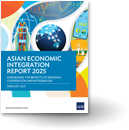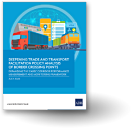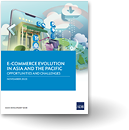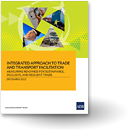Contract farming and high value chains: A pathway to inclusive growth?
Can contract farming link farmers to high value chains and provide a road for poverty alleviation? Countries from the developing world increasingly think so.
Developing and transitional economies have been turning into contract farming as a resourceful means to supply agricultural products, given their imperfect markets. Incomplete information, inadequate credit facilities, and lack of technical production knowledge make provision of reliable supply of agricultural products challenging in these countries.
In theory, contract farming is beneficial to both buyers and farmers. It is an agreement between an institutional buyer and farmers on the quantity and quality conditions of production and marketing of farm products. The buyer is committed to purchase the product at a specified time, and in some instances, to provide financial and technical assistance and supply of inputs.
The farmers, meanwhile, are formally obligated to deliver the expected output at that specified time. They enter a contract arrangement with the buyer since they are able to fetch high prices from the high quality of crop that the deal demands. They are also able to improve their production and management skills, gain better access to market and credit, and reduce their exposure to demand risk.
Contract farming: Boon or bane to farmers?
On the one hand, a few studies are skeptical about the contract scheme. They warn that risks are mostly borne by farmers, and results mostly favor the buyer (usually a transnational company). The buyer may also not honor the terms of agreement, and pay a lower price than initially agreed. It may use its bargaining power to disadvantage farmers, and tends to be biased toward farmers who own bigger land. This, in turn, has the potential to exacerbate rural inequalities.
On the other hand, other studies report that a contract arrangement brings more benefits to farmers than harm, citing anecdotal and empirical evidence. In India, for example, contract farming of tomato, groundnut, chilli, and oil palm resulted in higher incomes.
Another study surveyed 123 hog farmers in the Philippines, and found that contract farming raises their income by 44 percent. Contract growers in the sample also operate at higher levels of activity compared to non-growers.
The results are also positive in other countries, which use more advanced econometric methods. In Indonesia, contract farming of poultry and maize seed leads to higher returns to capital. Meanwhile, contract planting of organic rice in Thailand produces 70 to 100 percent higher income than conventional farming.
Policy implications: zooming in on the case of the Philippines
A new study in the Philippines that corrects for the endogeneity1 of participation in contract farming also finds a significant increase in profitability of farmers. More interestingly, it finds that smaller farmers tend to participate in contract faming. That is, contract farming does not exclude small farmers, and in fact, favors their participation.
This has a significant policy implication in a country where “inclusive growth” remains elusive even if it has been marked a priority in its national development plan. However, as the study focused only on tobacco farming, future research can look into extending the analysis to other crops.
Supply chains that bridge small farmers to high value chains though contracts have strong potential to support inclusive growth in rural areas. This calls for involvement of various stakeholders to support efficiency in the use of small farms, to promote development of transport and infrastructure in these areas, and to mitigate the risks faced by buyers and farmers.
Policy should then be targeted to help both sides. To encourage buyers to engage farmers, the institutional, business and the regulatory environment in rural areas should be improved so that contracts may be binding. At the same time, adequate support should be given to small farmers so that they are well-informed of their rights and of the commitments which, potentially, can make them inch their way out of poverty.
Hence, we highlight governments’ role in enforcing contracts, provision of training to farmers, and arbitrating disputes. As market regulators, they are to guard against any form of abuse by institutional buyers. By setting up the road of good governance over high value chains, the public sector links arms with private buyers to clear one more pathway to growth—one which is accessible to those who need it most.
1 To correct for endogeneity of participation in contract farming, the study ran two methods: a treatment effects procedure when it used a binary variable for participation; and an instrumental variable regression when participation was represented as a continuous variable. For the technically keen, see Briones (2014).




